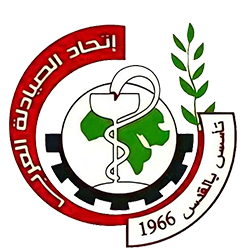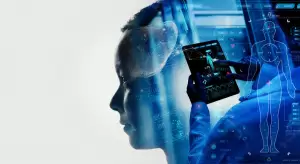You Will Learn
Learning Outcomes of the Course:
1-Maintaining patient records is among the core workflow
processes in healthcare
delivery.
With introduction and development of Health Information
Technologies
healthcare systems around the world are transitioning from
traditional paperbased
medical records to computer-based records and care
management systems.
Comprehensive, secure and interoperable Electronic Health
Record (EHR)
is the central functional component of a digital Hospital
Information System
(HIS) and is critical for enhancing quality and efficiency of
healthcare delivery,
while Health Information Exchange (HIE) provides
frameworks for electronic
movement of records between care settings, providers,
regions and countries,
thus supporting continuity of care.
2-The overall aim of this course is to introduce the students
to the main features
and processes in the domain of medical documentation, and
to modern digital
solutions for healthcare workflow management.
After completing the 2 modules the students achieved
following learning targets:
Professional competence:
− Knowledge of the main principles and parts of medical
documentation;
− Knowledge of the structure and function of an Electronic
Health Record
and its main components;
− Understanding of the approaches to EHR interoperability
and general
knowledge of the HL7 standard;
− Knowledge of the main components and functions of the
Clinical Information
Systems;
− Understanding of the main principles of Health
Information Exchange;
− Understanding of the role of EHR in public health and
medical research.
Methodological expertise:
− The students can build or modify simple EHR using open
source or simulation
systems;
− The students can compile simple projects on development
of a Hospital
Information System or a Practice Management System.
Personal competence:
− Ability to critically discuss the advantages and
disadvantages of EHR, and
to reflect on critical issues on EHR deployment and
implementation, such as the impact of usability on EHR adoption;
− Ability to reflect on the role of EHR in improving patient
safety;
− Ability to analyze and discuss the role and potential of
EHR in clinical,
population and public health.
Social competence:
− Group work on sample Electronic Health Records and
Hospital Information
Systems.
Description
After Theoretical knowledge of Digital Transformation in
healthcare and how ICT for healthcare will add values to
stake holders in a sustainable manner, and a practical
simulation in a Productive Electronic Medical Records
System to further understand and apply the concepts of
Interoperability of Health Records: importance of
interoperability; overview of current interoperability
standards; XML standard; HL7: history and evolution,
current state, management and evolution, structure, Clinical
Document Architecture (CDA), Continuity of Care
Document (CCD);emerging standards (FHIR) and
Distributed Legers .
A dive in the practical applications of Principles of Medical
Documentation: major components of a patient record;
administrative component; demographics; clinical
documentation component: chief complaint, history and
medication list, physical examination,
assessment and problem list; diagnoses; order entry;
laboratory and instrumental tests; care plan; progress notes;
discharge summaries.
Electronic Health Records (EHR): overview, rationale, need,
benefits (added value) and challenges of EHR; EHR
examples; accreditation and certification; regulatory aspects;
EHR types; adoption of EHR in different areas and
countries;
Accreditations

Certification in medical informatics as a basis for digital transformation in Healthcare
Some lectures will remain locked until you watch the previous ones.10:41
12:15
12:15
13:57
12:31
09:05
12:49
08:14
02:02
Recommended courses

Moustafa El-Esseily
Medical Coding and Transcription
Last updated : 2023-02-16 14:12:37
Medical Coding and Transcriptionthis course provides an overview of medical coding, focusing on the HCPCS, CPT, and ICD coding systems. Students will learn the basics of coding and gain an understanding of the different code sets and how they are used in medical...


.png)

31-01-2023
Mostischmidbauer Mostischmidbaue
31-01-2023
Mostischmidbauer Mostischmidbaue